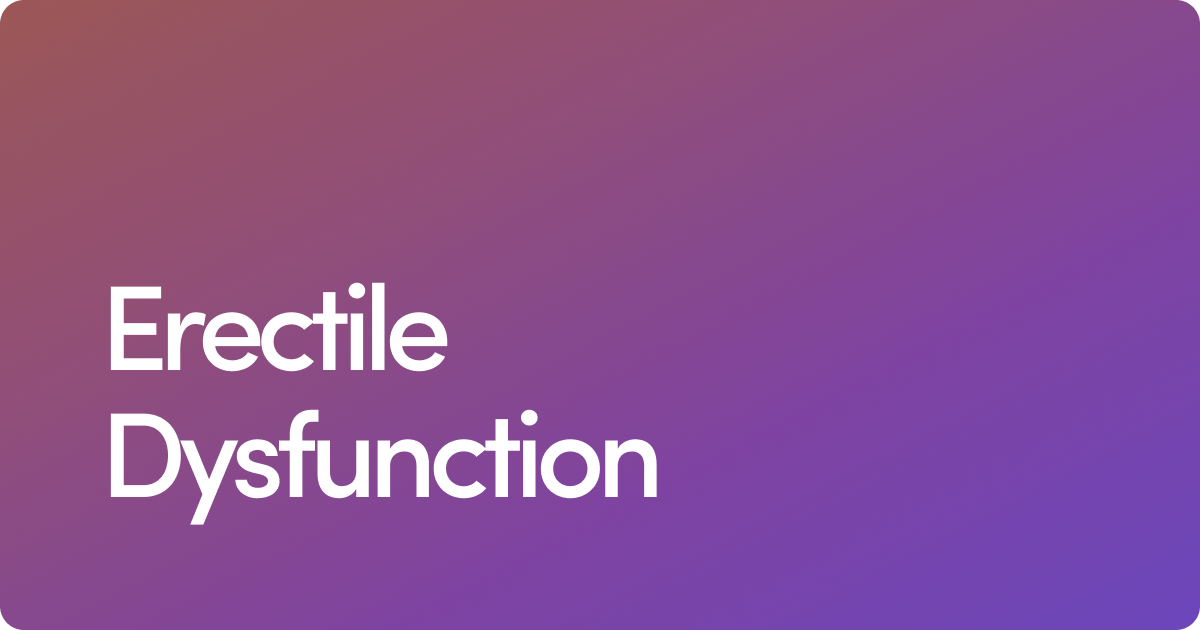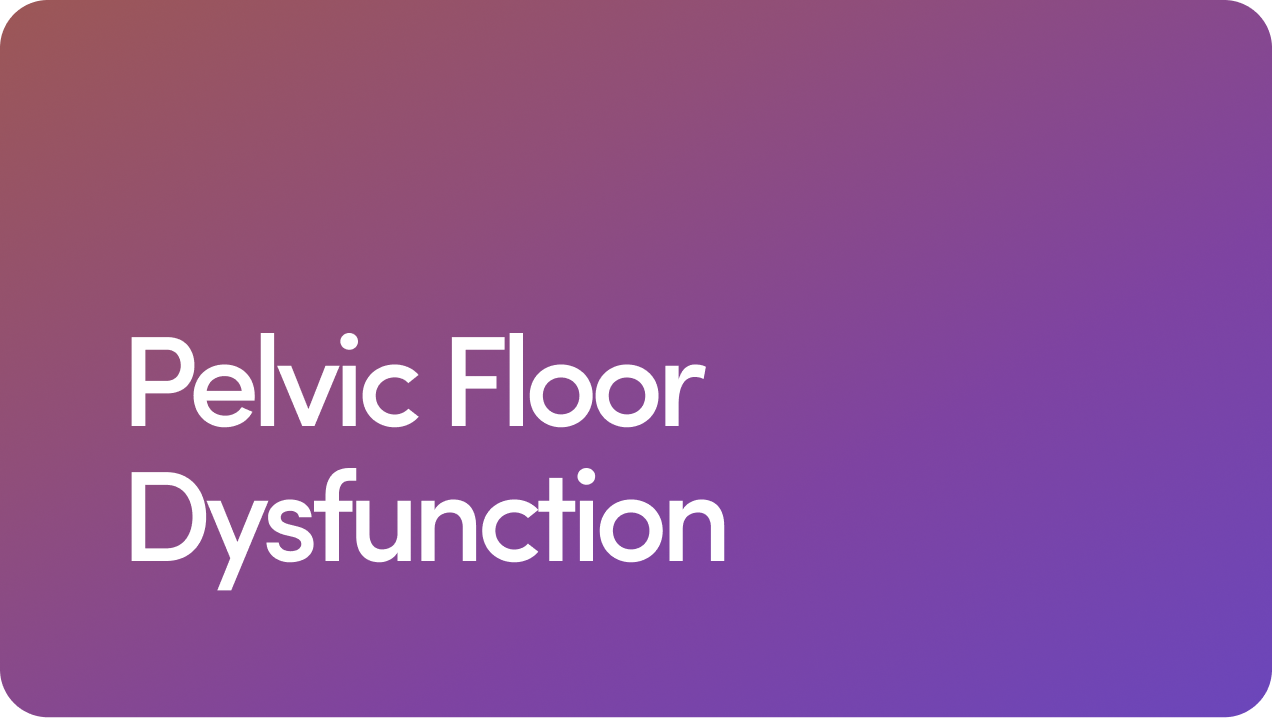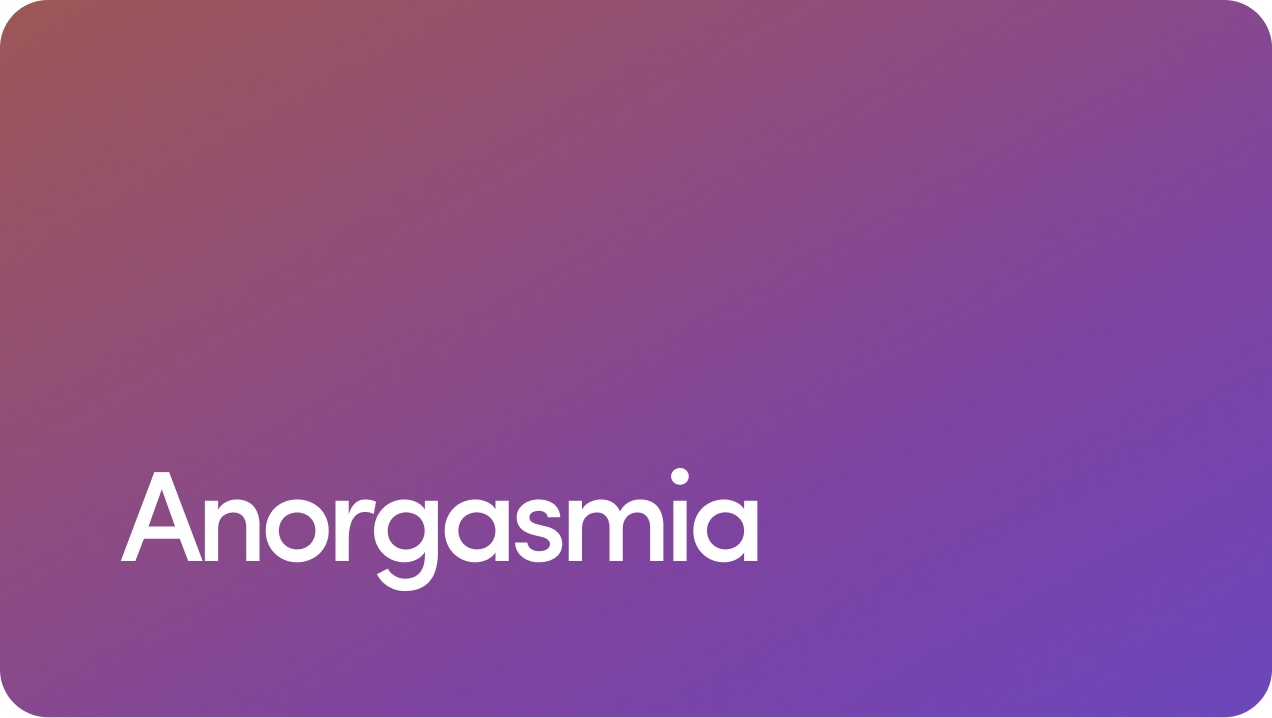Content
Your sex life, your way
Pornography and Depression: What’s the Link?

Reviewed by Kelly Brown MD, MBA
Written by Geoffrey C. Whittaker
Published 08/16/2021
Updated 04/18/2024
Porn and mental health are hot-button issues today. New research is starting to paint a picture of the relationship between excessive consumption of pornography and an increased risk of certain physiological conditions like depression. How are porn and depression linked? We’re here to clear the air.
In recent years, researchers have looked closer at how depressive symptoms relate to porn addiction, self-perceived problematic pornography use and even non-compulsive porn use.
If you’re trying to figure out if you have a porn problem, whether it’s affecting your mental health and if the psychological impacts will affect IRL sexual activity, you’re in the right place.
Does porn cause depression? We’ll answer this below and go over how pornography affects your brain and what to do if you’re watching it a lot and feeling low.
Content
Can Porn Cause Depression?
Potentially. While research hasn’t established a firm connection between porn and mental health issues, some studies suggest that depression and pornography consumption can make each other worse. This means watching porn could make you feel depressed, and depressive symptoms might lead you to use porn as an escape.
However, the American Association of Sexuality Educators, Counselors, and Therapists (AASECT) said it “does not find sufficient empirical evidence to support the classification of sexual addiction or pornography addiction as a mental health disorder.”
Do People With Depression Watch More Porn?
Depression has been shown to be a potential cause of problematic use of pornography — but only for those who use it as a coping mechanism to escape negative emotions. So we can’t be sure whether people suffering from depression watch more porn than the general population.
That said, there may be a link between viewing pornography and experiencing depression. Some research has suggested the relationship might work both ways.
Porn’s Impact on Depression
When it comes to depression, there are a few ways watching pornography could be causing problems:
It replaces or negatively affects real relationships.
The dopamine release it causes is addicting, leading to compulsive porn use.
It makes people who watch it feel bad about themselves.
We found a few studies with insight into the porn-depression question that help explain these effects.
How Watching Porn Affects Dopamine
A 2023 study suggested that the dopamine spike from watching pornography might replace the dopamine you get from other life activities (like participating in romantic relationships) with an easier source.
This could create an environment for addictive behaviors to form, especially in people who’ve experienced past trauma.
Guilt and Shame About Porn Use
One study published in The Journal of Treatment & Prevention found that those with guilt or anxiety about morals or religion had a problematic relationship with pornography.
Another study published in Archives of Sexual Behavior found that people who experience shame about pornography use may label themselves as addicted (even if they’re not).
Early Pornography Use and Mental Health
Another study found that about 12 percent of men with depression started using pornography in elementary school. For middle school, high school and college, the rates were 7 percent, 5 percent, and 6 percent, respectively.
Kids may be at an especially high risk of mental health disorders resulting from porn use. Pornography could contribute to an adolescent’s low self-esteem and poor life satisfaction. And they might experience more symptoms of depression than adults.
Signs of Problem Porn Consumption
Whether someone experiences negative consequences (psychological or otherwise) from watching porn may come down to the individual.
The depression-porn relationship isn’t fully understood. So there aren’t any official signs to look out for that signal whether porn consumption is causing mental health to decline.
You’ll need to examine specific elements of your life and relationships and ask yourself if porn is a contributing factor to the problems you’re seeing.
Symptoms of Depression
But there are some common symptoms to look out for if you think you might be depressed.
Depressive symptoms can include:
Feeling sad, worthless or guilty consistently
Feeling pessimistic or hopeless
Feeling irritable
Persistent anxiousness
Losing interest in usual hobbies or activities
Slurred speech or slowed movement
Chronic fatigue or a drop in energy
Sleep issues, like difficulty staying asleep and sleeping too much
Inability to stand still
Changes in weight or appetite
Difficulting focusing, concentrating or an impaired ability to make decisions
Sexual function issues or low libido (sex drive)
Suicidal thoughts or attempts
According to the National Institute of Mental Health, if these symptoms are experienced every day for at least two weeks, it could point to depression.
If you think your pornography is negatively affecting your mental health, there are several treatment options available — more on this below.
How Porn Can Affect Erectile Function
Watching too much porn could lead to erectile dysfunction (ED) by affecting your ability to get hard from real-life stimulation.
And if watching pornography results in depression, it could also contribute to sexual function issues, as depression is one of several psychological causes of ED.
So what happens if you do notice a correlation between your porn consumption and a low mood?
If you feel any of the above symptoms, it’s wise to consult a mental health professional about depression treatment options, which may include medication, therapy or social support.
Antidepressant Medication
Many people who suffer from depression take antidepressants to help manage the symptoms.
These medications work by improving the way the chemicals in your brain handle stress. They can take several weeks to start working, so patience is key. Also, you may see symptoms like poor sleep, concentration problems and appetite get better before your mood improves.
Some people may try a few antidepressants before finding one that works best for their needs.
Stopping antidepressants without the help of a healthcare provider can result in withdrawal symptoms. This can happen when people start to feel better from antidepressants and think they can stop taking the medication.
It’s a good idea to talk to your healthcare provider if you’re feeling better and want to stop taking antidepressants. They’ll help you slowly taper off, which might take weeks or months.
Before taking any medications — prescription or over-the-counter — talk to a trusted healthcare provider. They’ll be able to recommend the best treatment and dosage for your unique needs.
ED Medication
If excessive porn use has led to depression, which then caused ED, it might be worth exploring erectile dysfunction medications.
Known as PDE5 inhibitors, these prescription drugs work to enhance the effects of nitric oxide to improve blood flow to the penis — a necessary function for erections. They include Cialis® (and its generic tadalafil), Viagra® (or generic sildenafil) and Stendra® (avanafil).
You can also get chewable ED meds in the form of hard mints from Hims. They contain the same active ingredients as these other prescription erectile dysfunction medications.
Psychotherapy
Besides medication, many kinds of psychotherapy (also called talk therapy or online counseling) can help people with depression.
Talking with a healthcare provider can help you zero-in on which type of therapy might be a good fit for you.
Evidence-based treatments for depression include cognitive-behavioral therapy (CBT), interpersonal therapy (IPT) and problem-solving therapy.
Sex Therapy
Discussing your sexual health and well-being with a therapist could help you get to the bottom of your depression symptoms — and figure out how porn-related depression might be affecting your erectile function.
Discussing your sexual problems may even increase your quality of life. Your therapist might want to explore the role of moral incongruence for pornography users, a perceived porn addiction, sex addiction, hypersexuality and general sexual health.
Other Ways to Ease Depression
There are some ways to ease depression on your own. These include keeping up with exercise, confiding in a loved one, engaging in support groups or just socializing with others.
Setting realistic mental health goals is crucial. Your mood may get better gradually, so try to stay patient and celebrate small improvements.
Feeling depressed can be debilitating. But with the right therapies and an understanding of the roots of your condition, depression can be treated. And with time, you can get back to better emotional health.
Studies published by the American Psychological Association have shown that porn use can be linked to negative attitudes toward women and risky sexual behavior (like poor contraceptive use). In some cases, it may even lead to divorce.
Further research into compulsive behaviors, dopamine release and all the scientific details surrounding this issue will hopefully tell us more in the future.
Although there’s no definitive answer as to whether porn can trigger depression, it’s important to stay on top of your mental health. Here’s the takeaway:
There may be a link between pornography consumption and depression.
If you find your low mood coincides with an uptick in porn viewing, it might be helpful to cut back or take a break — and see if your mood improves.
Some research suggests pornography may lead to depression but places the blame on feelings of shame or guilt associated with porn consumption — not the porn itself.
If you’re feeling depressed, anxious or any sort of psychological distress, help is available.
Speaking with a healthcare professional is an excellent first step. They can pinpoint what might be causing your low mood and help determine the best treatment options.
If you’re interested in erectile dysfunction treatments for depression-related ED, our sexual health platform is a great place to start. And you can learn about the different types of therapy in our blog.
11 Sources
- Dwulit, A. D., & Rzymski, P. (2019). Prevalence, Patterns and Self-Perceived Effects of Pornography Consumption in Polish University Students: A Cross-Sectional Study. International journal of environmental research and public health, 16(10), 1861. https://doi.org/10.3390/ijerph16101861
- Hald, G. M., Malamuth, N. N., & Lange, T. (2013, June 10). Pornography and Sexist Attitudes Among Heterosexuals. Oxford Academic. Retrieved July 12, 2021, from https://academic.oup.com/joc/article-abstract/63/4/638/4085972?redirectedFrom=fulltext
- Schrimshaw, E. W., Antebi-Gruszka, N., & Dowling Jr., M. J. (2016, April 27). Viewing of Internet-Based Sexually Explicit Media as a Risk Factor for Condomless Anal Sex among Men Who Have Sex with Men in Four U.S. Cities. PlosOne. Retrieved July 12, 2021, from https://journals.plos.org/plosone/article?id=10.1371/journal.pone.0154439
- AASECT Position on Sex Addiction. (n.d.). American Association of Sexuality Educators, Counselors and Therapists. Retrieved July 12, 2021, from https://www.aasect.org/position-sex-addiction
- Borgogna, N. C., Duncan, J., & McDermott, R. C. (2019, February 18). Is scrupulosity behind the relationship between problematic pornography viewing and depression, anxiety, and stress? Taylor & Francis Online. Retrieved July 12, 2021, from https://www.tandfonline.com/doi/full/10.1080/10720162.2019.1567410
- De Jong, D. C., & Cook, C. (2021). Roles of Religiosity, Obsessive-Compulsive Symptoms, Scrupulosity, and Shame in Self-Perceived Pornography Addiction: A Preregistered Study. Archives of sexual behavior, 50(2), 695–709. https://doi.org/10.1007/s10508-020-01878-6
- Min, M., Zhihong, C., Xiaogang, W., Peng, Z., & Jia, C. (n.d.). Current situation of pornography use in senior college male students and its correlation with their depression-anxiety-pressure. CNKI. Retrieved July 12, 2021, from http://en.cnki.com.cn/Article_en/CJFDTotal-DSDX201711022.htm
- Kohut, T., & Štulhofer, A. (2018). Is pornography use a risk for adolescent well-being? An examination of temporal relationships in two independent panel samples. PloS one, 13(8), e0202048. https://doi.org/10.1371/journal.pone.0202048
- Depression. (n.d.). National Institute of Mental Health. Retrieved July 12, 2021, from https://www.nimh.nih.gov/health/topics/depression/
- Privara, M., & Bob, P. (2023). Pornography Consumption and Cognitive-Affective Distress. The Journal of nervous and mental disease, 211(8), 641–646. https://www.ncbi.nlm.nih.gov/pmc/articles/PMC10399954/
- Perry, S. L. (2018). Pornography Use and Depressive Symptoms: Examining the Role of Moral Incongruence. Society and Mental Health, 8(3), 195-213. https://journals.sagepub.com/doi/abs/10.1177/2156869317728373
Editorial Standards
Hims & Hers has strict sourcing guidelines to ensure our content is accurate and current. We rely on peer-reviewed studies, academic research institutions, and medical associations. We strive to use primary sources and refrain from using tertiary references. See a mistake? Let us know at [email protected]!
This article is for informational purposes only and does not constitute medical advice. The information contained herein is not a substitute for and should never be relied upon for professional medical advice. Always talk to your doctor about the risks and benefits of any treatment. Learn more about our editorial standards here.

Kelly Brown MD, MBA
Dr. Kelly Brown is a board certified Urologist and fellowship trained in Andrology. She is an accomplished men’s health expert with a robust background in healthcare innovation, clinical medicine, and academic research. Dr. Brown was previously Medical Director of a male fertility startup where she lead strategy and design of their digital health platform, an innovative education and telehealth model for delivering expert male fertility care.
She completed her undergraduate studies at University of North Carolina at Chapel Hill (go Heels!) with a Bachelor of Science in Radiologic Science and a Minor in Chemistry. She took a position at University of California Los Angeles as a radiologic technologist in the department of Interventional Cardiology, further solidifying her passion for medicine. She also pursued the unique opportunity to lead departmental design and operational development at the Ronald Reagan UCLA Medical Center, sparking her passion for the business of healthcare.
Dr. Brown then went on to obtain her doctorate in medicine from the prestigious Northwestern University - Feinberg School of Medicine and Masters in Business Administration from Northwestern University - Kellogg School of Management, with a concentration in Healthcare Management. During her surgical residency in Urology at University of California San Francisco, she utilized her research year to focus on innovations in telemedicine and then served as chief resident with significant contributions to clinical quality improvement. Dr. Brown then completed her Andrology Fellowship at Medical College of Wisconsin, furthering her expertise in male fertility, microsurgery, and sexual function.
Her dedication to caring for patients with compassion, understanding, as well as a unique ability to make guys instantly comfortable discussing anything from sex to sperm makes her a renowned clinician. In addition, her passion for innovation in healthcare combined with her business acumen makes her a formidable leader in the field of men’s health.
Dr. Brown is an avid adventurer; summiting Mount Kilimanjaro in Tanzania (twice!) and hiking the incredible Torres del Paine Trek in Patagonia, Chile. She deeply appreciates new challenges and diverse cultures on her travels. She lives in Denver with her husband, two children, and beloved Bernese Mountain Dog. You can find Dr. Brown on LinkedIn for more information.
Education & Training
Andrology Fellowship, Medical College of Wisconsin
Urology Residency, University of California San Francisco
M.D. Northwestern University Feinberg School of MedicineB.S. in Radiologic Science, Chemistry Minor, University of North Carolina at Chapel Hill
Research
Published as Kelly Walker
Cowan, B, Walker, K., Rodgers, K., Agyemang, J. (2023). Hormonal Management Improves Semen Analysis Parameters in Men with Abnormal Concentration, Motility, and/or Morphology. Fertility and Sterility, Volume 118, Issue 5, e4. https://www.sciencedirect.com/journal/fertility-and-sterility/vol/120/issue/1/suppl/S
Walker, K., Gogoj, A., Honig, S., Sandlow, J. (2021). What’s New in Male Contraception? AUA Update Series, Volume 40. https://auau.auanet.org/content/update-series-2021-lesson-27-what%E2%80%99s-new-male-contraception
Walker, K., Shindel, A. (2019). AUA Erectile Dysfunction Guideline. AUA Update Series, Volume 38. https://auau.auanet.org/content/course-307
Walker, K., Ramstein, J., & Smith, J. (2019). Regret Regarding Fertility Preservation Decisions Among Male Cancer Patients. The Journal of Urology, 201(Supplement 4), e680-e681. https://www.auajournals.org/doi/10.1097/01.JU.0000556300.18991.8e
Walker, K., & Smith, J. (2019). Feasibility Study of Video Telehealth Clinic Visits in Urology. The Journal of Urology, 201(Supplement 4), e545-e545. https://www.auajournals.org/doi/10.1097/01.JU.0000556071.60611.37
Related Articles
Related Conditions
 Erectile Dysfunction
Erectile Dysfunction
 Premature Ejaculation
Premature Ejaculation
 Low Testosterone
Low Testosterone
 Retrograde Ejaculation
Retrograde Ejaculation
 Pelvic Floor Dysfunction
Pelvic Floor Dysfunction
 Anorgasmia
Anorgasmia